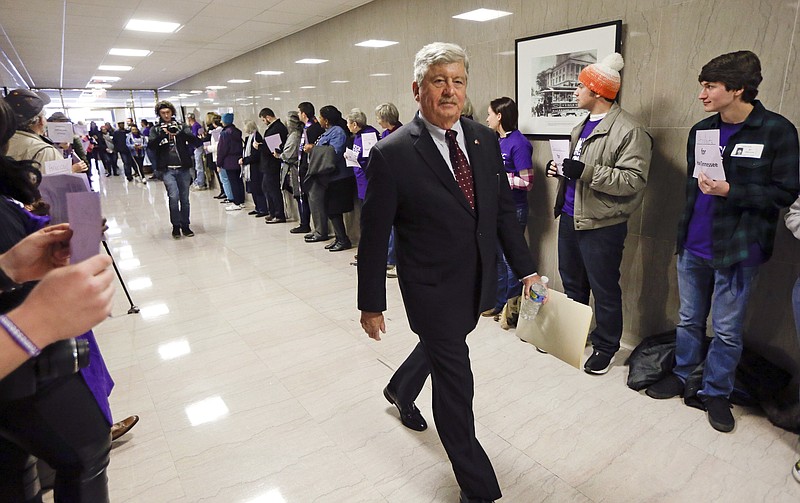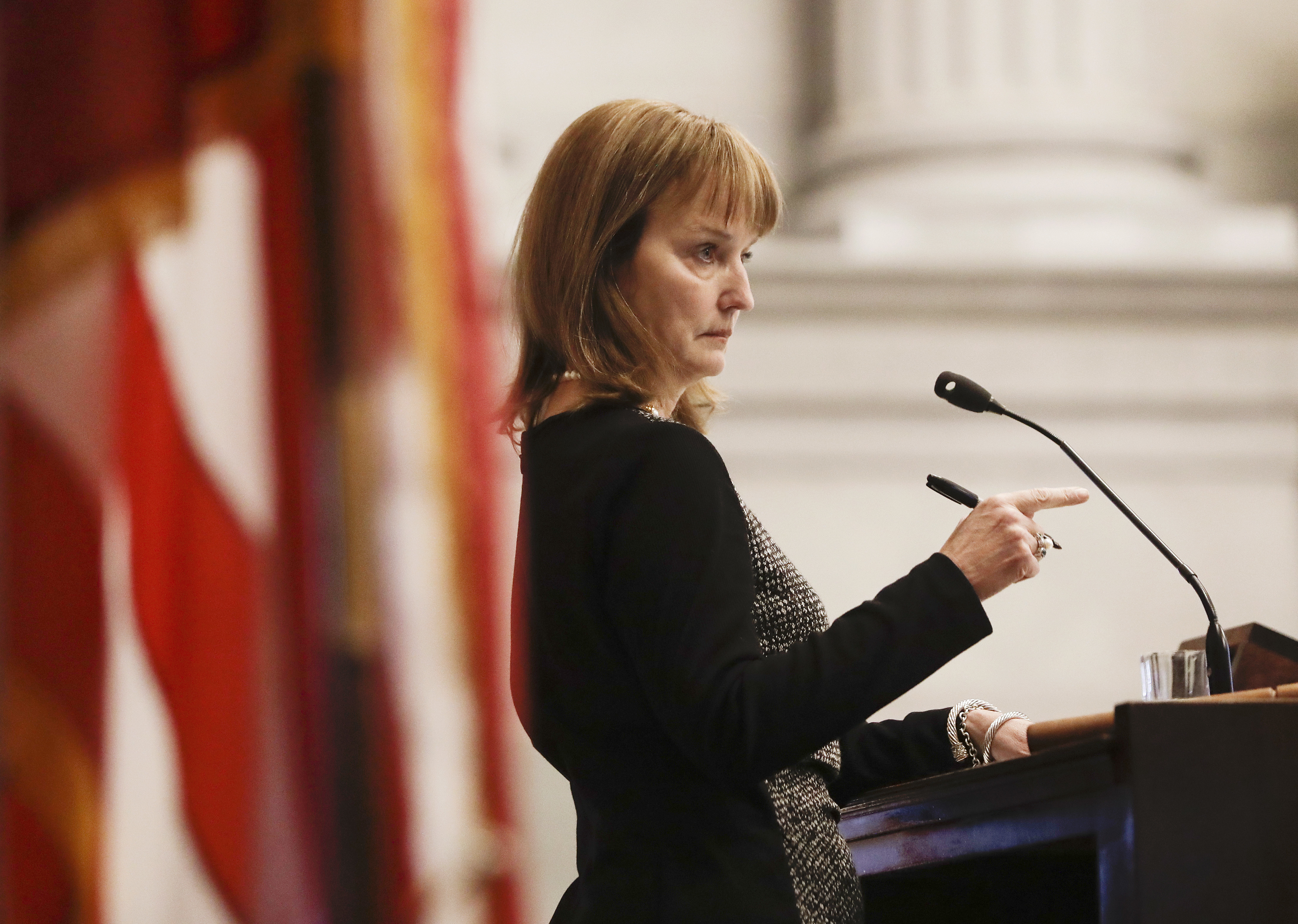NASHVILLE - Senate Republicans on Thursday sent a controversial bill seeking to impose work requirements on some able-bodied adult Medicaid enrollees from the floor back to committee for further review.
The move by Lt. Gov. Randy McNally, R-Oak Ridge, caught House Speaker Beth Harwell - a Nashville Republican running for governor who sponsored the bill, which was passed earlier this week in the lower chamber - completely off guard.
She defended the legislation, saying it has "84 percent popularity, people want to see this work requirement. It's a work requirement that we put on welfare recipients - we did that back when Bill Clinton allowed us to have that flexibility. Trump is giving us this flex with TennCare."
She added: "I still firmly believe that able-bodied people should either volunteer, go back to school or work, one of those three things."
McNally later told reporters that he generally favors the concept but had questions about the legislation after speaking with state and federal officials while in Washington this week.
Mary Graham, president of United Ways of Tennessee, said the organization and others who oppose the Medicaid work-requirement bill are "grateful to Senate leaders for pushing the pause button" on the legislation.
"We urge our senators to get answers to the many unanswered questions about the bill's true cost to taxpayers financially, as well as the potential negative impact on Tennesseans and our communities," Graham said in a statement. "We encourage our Senate to look at who the bill would affect, as well as its unintended harm to vulnerable children, seniors and people with disabilities."
With President Donald Trump giving a green light, a number of Republican-led states are pursuing similar waivers to implement work requirements for enrollees of Medicaid and waivers have already been approved for three states.
The jointly funded state and federal program provides health care coverage for low-income pregnant women, mothers and children, as well as some disabled Americans. The state's TennCare program is the state's version of Medicaid. It covers about 1.4 million people.
"I just wanted to check with the [Trump] administration and see if implementation of that bill is lined up and goes smoothly," McNally said. "And I, unfortunately, haven't had a chance to talk to them about it."
The Medicaid work requirement wouldn't affect the vast majority of enrollees because pregnant women, mothers of young children, caretakers and disabled persons are excluded.
Legislative Democrats here opposed the bill, insisting it should come with an expansion of Medicaid to an estimated 280,000 uninsured, low-income adults who currently work.
And they also question Harwell's approach on the legislation. It originally projected implementation costs of about $16 million for the state and about $18 million for the federal government.
But a House amendment, fiercely criticized by legislative Democrats as a funny-money scheme aimed at scooting by requirements providing first-year funding for initiatives, changed that.
Instead, it says the state is simply asking for a waiver of Medicaid rules and seeks permission to use some $40 million annually from a reserve fund for the state's welfare program, Families First, which is partially funded under the federal Temporary Assistance to Needy Families program.
McNally acknowledged to reporters that that is one of his concerns.
Legislative Democrats have charged Harwell's bill is motivated by her bid for governor.
Asked about that and whether he's concerned his action might be perceived by some as an effort to hurt Harwell, McNally laughed.
"No, that's totally off-base," he told reporters. "We want to pass the bill, but we want to make sure it's implemented correctly and, to the extent we could, hold down the costs."
McNally has not publicly endorsed Harwell or any of the other three major Republican candidates running for governor.
Contact staff writer Andy Sher at asher@timesfreepress.com or 615-255-0550.

